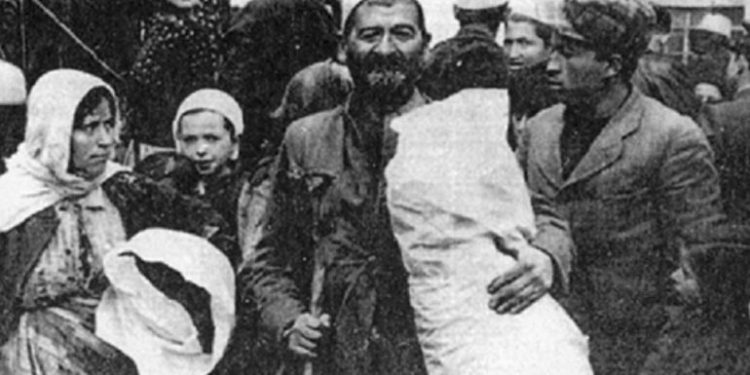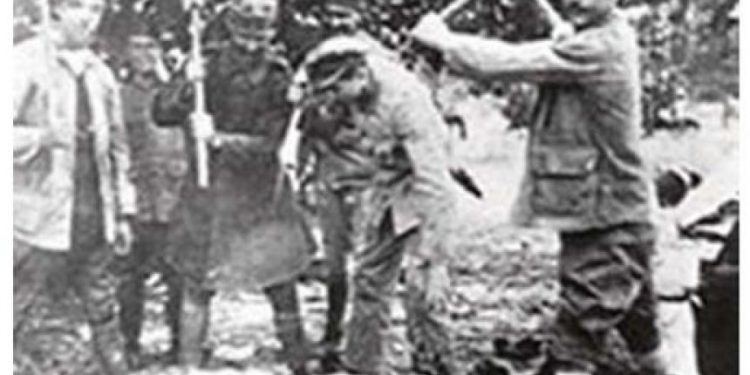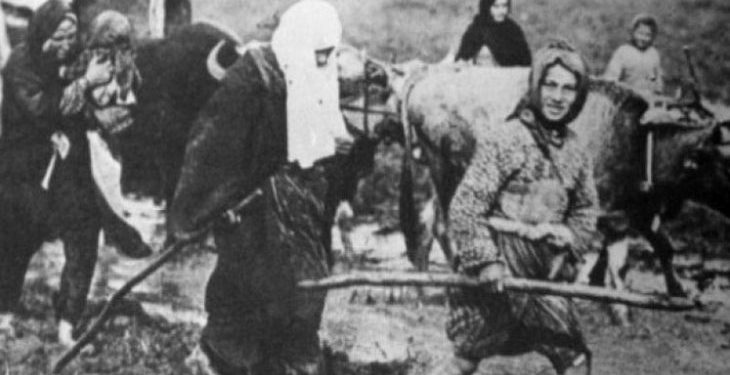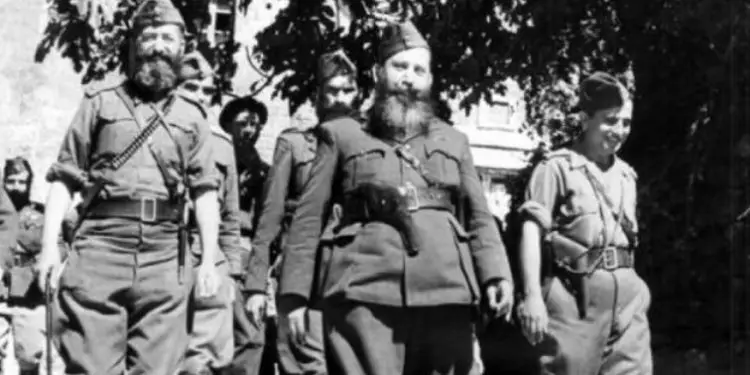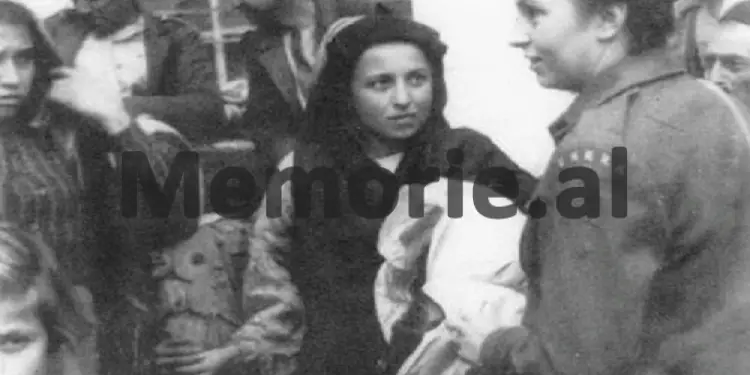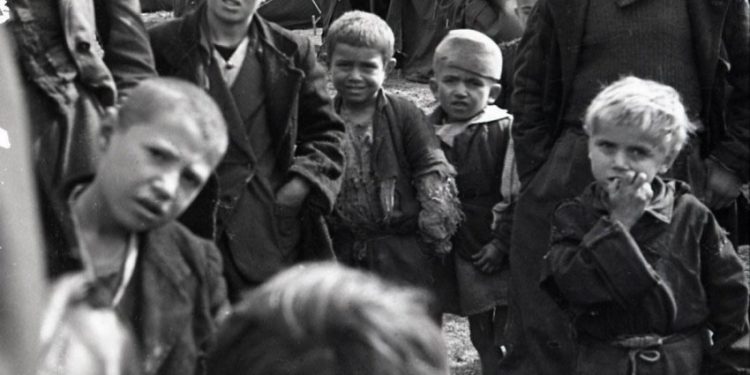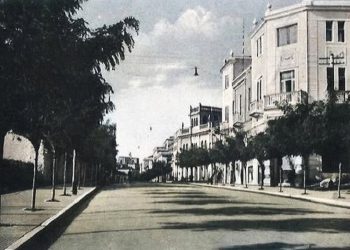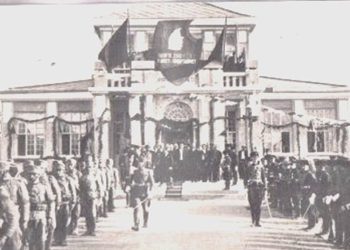By Enver Kushi
Memorie.al / These days, while searching in the files of my modest archive on Chameria, I found a photocopied poem; “Sanije Bollati”, written by Gjergj Komnino and published in the newspaper Zëri i Çamërisë (The Voice of Chameria). The newspaper in question was the organ of the Anti-Fascist Committee of Cham Emigrants in Albania and was published only for a few months, starting from the second half of 1945. On the pages of this newspaper, Gjergj Komnino published some of the most painful poetic creations dedicated to the Cham tragedy, such as; “Paramithi, Paramithi”, “The Road of Return”, “Sanije Bollati”.
A special study would be needed, dedicated to the life and work of Gjergj Komnino, who, as the writer from Durrës, Shpend Topollaj, writes, “was a graduate abroad, where he brilliantly defended his diploma with a study on Luigi Pirandello.”
This intellectual, in whose veins “flowed the blood of princes and even emperors,” this early anti-fascist, the communist regime would imprison.
Agim Musta in the book “Mandelët e Shqipërisë” (The Mandelas of Albania), among other things, recalls Komnino’s words: “They sentenced me to death in 1956. Six months eating like a dog in a trough, six months with my hands and feet tied with iron, six months urinating on my clothes, six months…!”
Let me return to Gjergj Komnino’s poems dedicated to the Cham tragedy. Their common feature is extreme pain and tragedy verging on a scream. The poet seems to have become intimately familiar with the Cham wound and the tormented body of Chameria. He has become part of this tragedy, and it seems as if his body, too, is wounded and still bleeding.
I think the poem “Sanije Bollati” is the most tragic. The atmosphere is Dantesque. She seems to speak into a void, somewhere between earth and sky. It has 37 verses and at the end, a clarification for the reader: “Sanije Bollati is a victim of the Greek monarcho-fascists, who burned her little by little and terribly massacred her.”
Who is Sanije Bollati? She was born in the city of Paramythia, the daughter of one of the ancient tribes of this city (where the Bollati Tower still stands) and married in the same city, into the Nuri family.
It is of interest to the reader to make known the notarized statement of Fadil Nuri, dated January 26, 2005, born in Paramythia in 1935 and the son of Sanije Bollati.
I quote a part of his testimony, taken by Mr. Ilmi Saqe and certified by the notary Ruko Soko: “My mother had my 6-month-old sister, Dilena, in the cradle and went to the bathroom to get my sister’s clothes, but the criminals burned her. The mother came out of the bathroom all in flames.
I started to cry loudly, seeing my mother’s whole body burning in flames. A Zervist shot me and pushed me from the second floor, throwing me down the stairs, resulting in injuries and fragmentation. I was covered in blood from the wounds I received. This scar on my forehead is from these criminals. My mother continued to burn until she lost consciousness.
She was completely scorched, her body’s flesh was blackened and in places, it was oozing blood…! Her lips were burned, her teeth were exposed. From the burning, her body had wrinkled and shrunk. It was a terrifying sight. That sight has accompanied me and will accompany me as long as I live…! The Zervist criminals also killed my sister, 6-month-old Dilena, in the cradle…!”
The aforementioned testimony, unparalleled in the cannibalism of the Zervist bands against the innocent Cham population, brings to mind, among other things, the saying of the objective Greek historian, Niko Zhangu: “We must look at our face in the mirror of history and be ashamed of what was done (in Thesprotia), because it is not in the character of our people.”
The contemporary Greek historian Giorgos Margaritis holds the same opinion, writing in his book “Undesirable Compatriots” about Paramythia, which on June 27, 1944, “the city turned into a slaughterhouse…! About five hundred people were killed in the most inhuman ways. The general mistreatment of women and the looting of property completed this picture.”
Gjergj Komnino’s poetry is republished on the pages of the Albanian press after 66 years, within the framework of June 27, the Day of Genocide against the Albanians of Chameria by Greek chauvinists.
Returning to the pain as a screaming memory and the innocent victims, we take this opportunity to appeal to the sensible Greek opinion, historians, and intellectuals of our southern neighbor that the time has come for the solution of the Cham issue and for the rebuilding of bridges of understanding between our ancient peoples.
“No law of the world,” wrote our great writer Ismail Kadare, “no cultural formation, can make people not have memory, much less not have nostalgia.
It is a pain that does not go away just because someone declares it illegal. Not by pretending not to know, and even less so when one acts without respect towards it.
Your great ancient fathers, those who later gave another dimension to world culture, in the extraordinary tragedies they wrote, knocked hard on the conscience of contemporaries and generations, creating catharsis.”
The ashes of Sanije Bollati’s dead body in martyred Paramythia are still outside, unburied in the earth. Also unburied in the earth are the bones of the elderly, men, women, and children, barbarically massacred by the infamous bands of Napoleon Zervas.
In their name, the souls that find no peace, at least allow us to place a rose where they are, in the tragic lands of our Chameria.
This poem speaks to you! The voice coming from the ashes of Sanije Bollati’s burned body speaks to you. Listen to this voice and that of the poet Gjergj Komnino. Memorie.al




